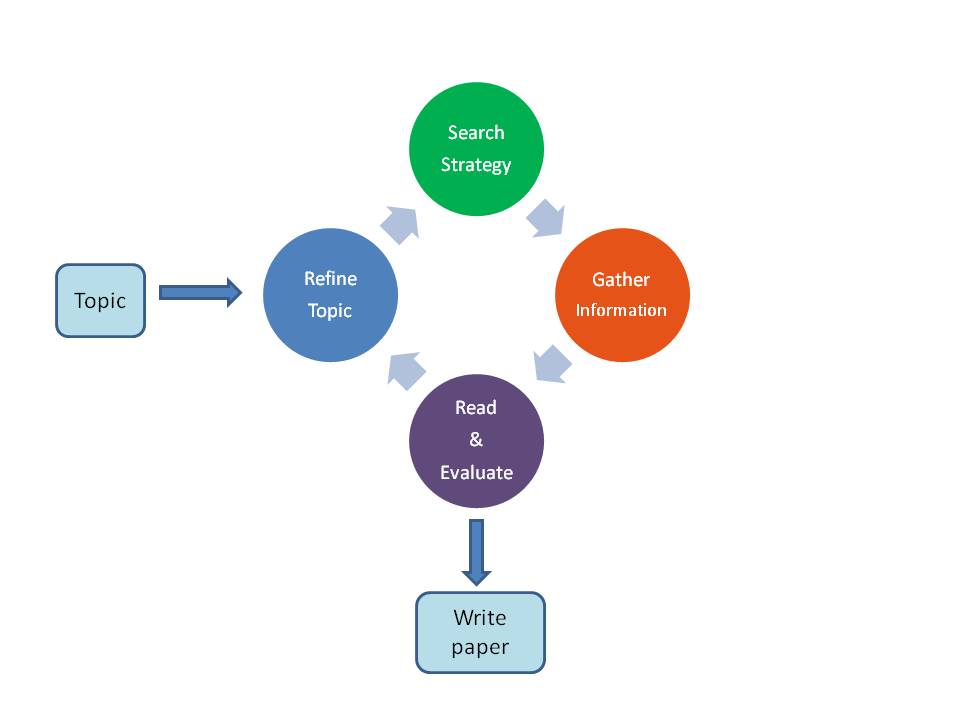Often your teacher will assign a topic, or give you a list of topics to choose from. Sometimes you’ll have to come up with your own.
If you are stuck, try the following:
- Choose a topic you’re interested in. What would you like to learn more about?
- Find a problem that others may care about.
- Look through your course materials for a general idea.
- Browse through current magazines and newspapers.
- Consult an encyclopedia in your subject field.
- Do a quick search on the Web.
To get a better understanding of your topic you will have to do some
background research. This involves reading casually about the topic, without focusing too much on choosing your final sources.
Background reading will give you an overview of your subject and let you put it into context. It can also reveal different aspects or perspectives that you can use to make your focus more specific.
This reading can be done using Encyclopedias and reference works, or online sources. Remember that the sources you use for background research, probably won’t be referenced in your final paper.
Tip: As you read, write down any subject headings, terms or phrases that you see being used in discussions of your topic.
These terms (or
keywords) will be useful when you start to plan your search strategy.
Depending on the assignment, you may be asked to formulate your topic as a research question or as a thesis statement.
Research question
At the college level, research papers require more than a simple gathering of information and opinions. You need to ask (and answer) questions: Who? Where? How? What if? and Why?
Ask yourself:
What question would I like my research to answer?
Phrasing your topic as a question will give your paper more focus. Your research question should require you to reflect on the topic, and should not be something you already know.
Thesis statement
Your thesis statement presents the answer to your research question. It is the claim, or position, you plan to defend, based on what you have learned from your research. The goal of your paper is to present evidence to support your thesis.
Breadth
Remember to go from general to specific when refining your topic. If your topic is too broad (general) you will end up with too much information to go through. If your topic is too narrow, or specific, you may not be able to find enough information for your research.
Sample Topic: the rising level of obesity
Research question:
Why is there an increasing level of obesity in children?
This topic is very broad. In this case, you would need to narrow your focus to a single aspect of the question, such as one potential cause of obesity. Your background reading will have identified many potential causes, and could inform your choice of thesis statement.
Thesis Statement:
The proliferation of fast food restaurants has led to an increase in childhood obesity.

